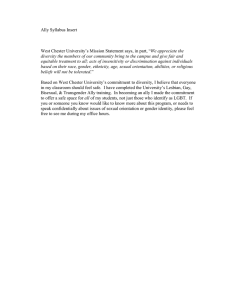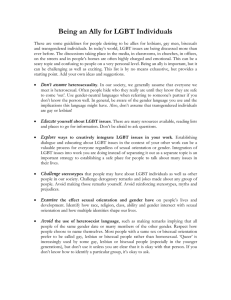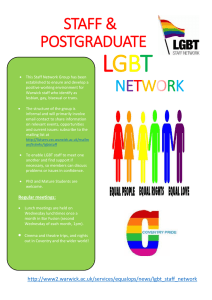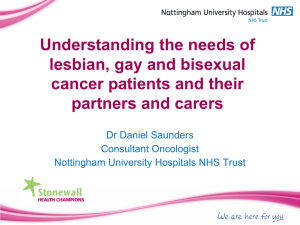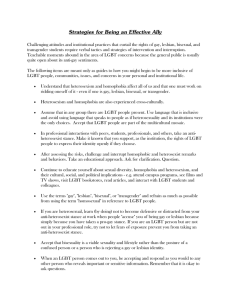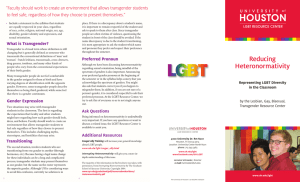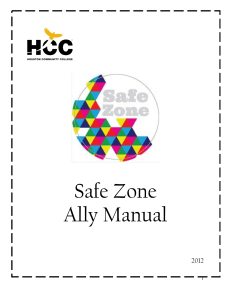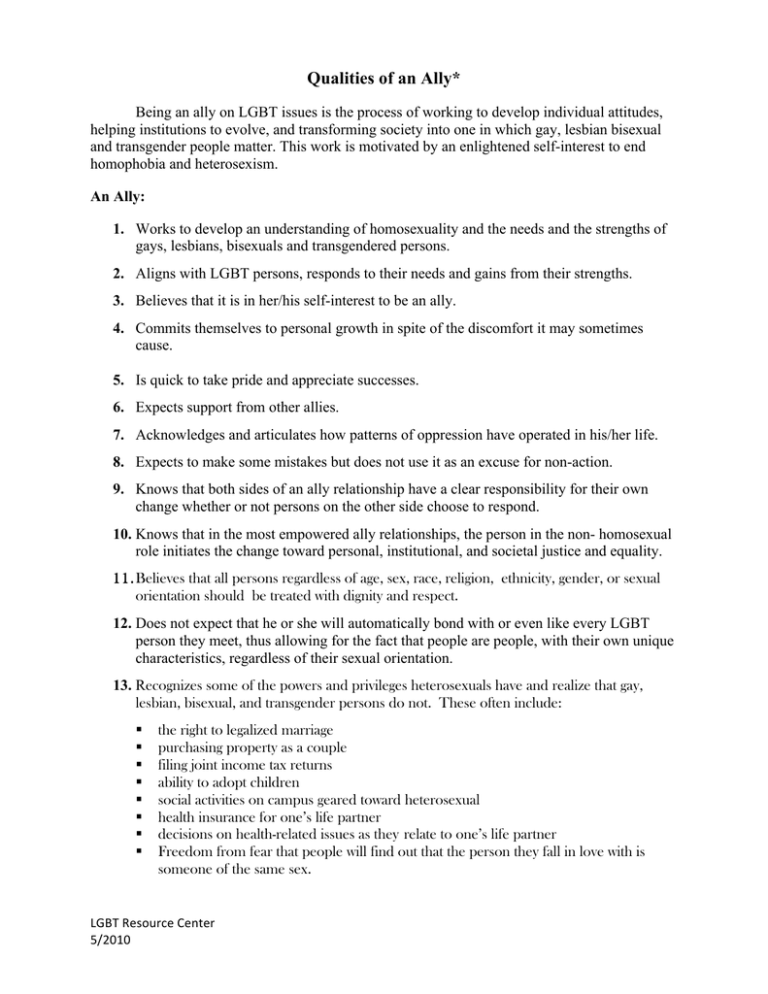
Qualities of an Ally*
Being an ally on LGBT issues is the process of working to develop individual attitudes,
helping institutions to evolve, and transforming society into one in which gay, lesbian bisexual
and transgender people matter. This work is motivated by an enlightened self-interest to end
homophobia and heterosexism.
An Ally:
1. Works to develop an understanding of homosexuality and the needs and the strengths of
gays, lesbians, bisexuals and transgendered persons.
2. Aligns with LGBT persons, responds to their needs and gains from their strengths.
3. Believes that it is in her/his self-interest to be an ally.
4. Commits themselves to personal growth in spite of the discomfort it may sometimes
cause.
5. Is quick to take pride and appreciate successes.
6. Expects support from other allies.
7. Acknowledges and articulates how patterns of oppression have operated in his/her life.
8. Expects to make some mistakes but does not use it as an excuse for non-action.
9. Knows that both sides of an ally relationship have a clear responsibility for their own
change whether or not persons on the other side choose to respond.
10. Knows that in the most empowered ally relationships, the person in the non- homosexual
role initiates the change toward personal, institutional, and societal justice and equality.
11. Believes that all persons regardless of age, sex, race, religion, ethnicity, gender, or sexual
orientation should be treated with dignity and respect.
12. Does not expect that he or she will automatically bond with or even like every LGBT
person they meet, thus allowing for the fact that people are people, with their own unique
characteristics, regardless of their sexual orientation.
13. Recognizes some of the powers and privileges heterosexuals have and realize that gay,
lesbian, bisexual, and transgender persons do not. These often include:
the right to legalized marriage
purchasing property as a couple
filing joint income tax returns
ability to adopt children
social activities on campus geared toward heterosexual
health insurance for one’s life partner
decisions on health-related issues as they relate to one’s life partner
Freedom from fear that people will find out that the person they fall in love with is
someone of the same sex.
LGBT Resource Center 5/2010 14. Promotes a sense of community with the LGBT community and teaches others about the
importance of outreach.
15. Recognizes their personal boundaries.
16. Knows when to refer someone to additional resources.
17. Confronts their own prejudices.
18. Has a good sense of humor.
19. Is aware of the coming out process and realize that it is not a one-time event. It brings
challenges that are not often understood.
20. Understands that LGBT people receive the same messages about homosexuality and
bisexuality as everyone else. Thus they often suffer from internalized homophobia and
heterosexism.
*Adapted from: Cleveland State University, Office of Diversity and Multicultural Affairs
Website.
LGBT Resource Center 5/2010

